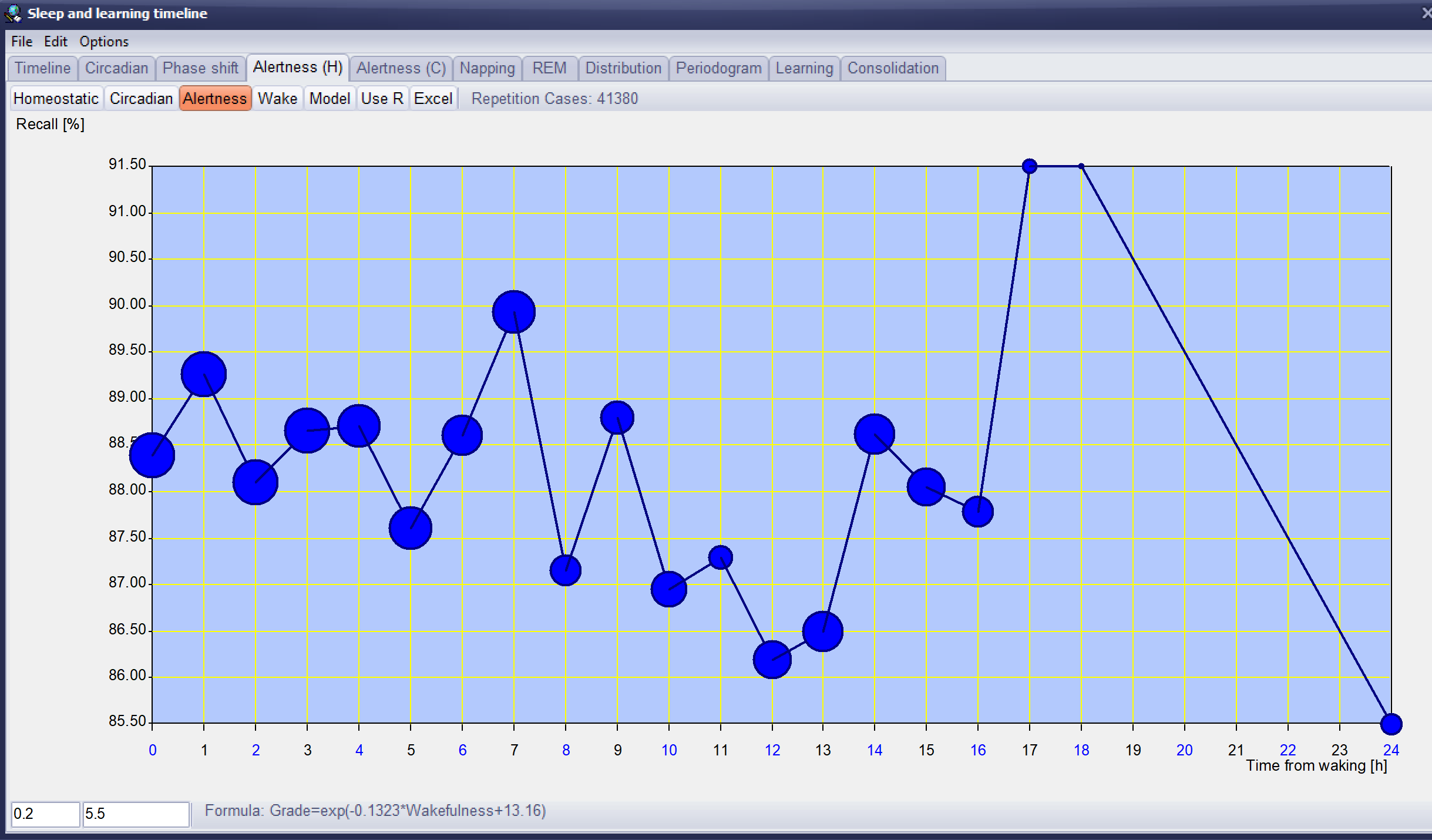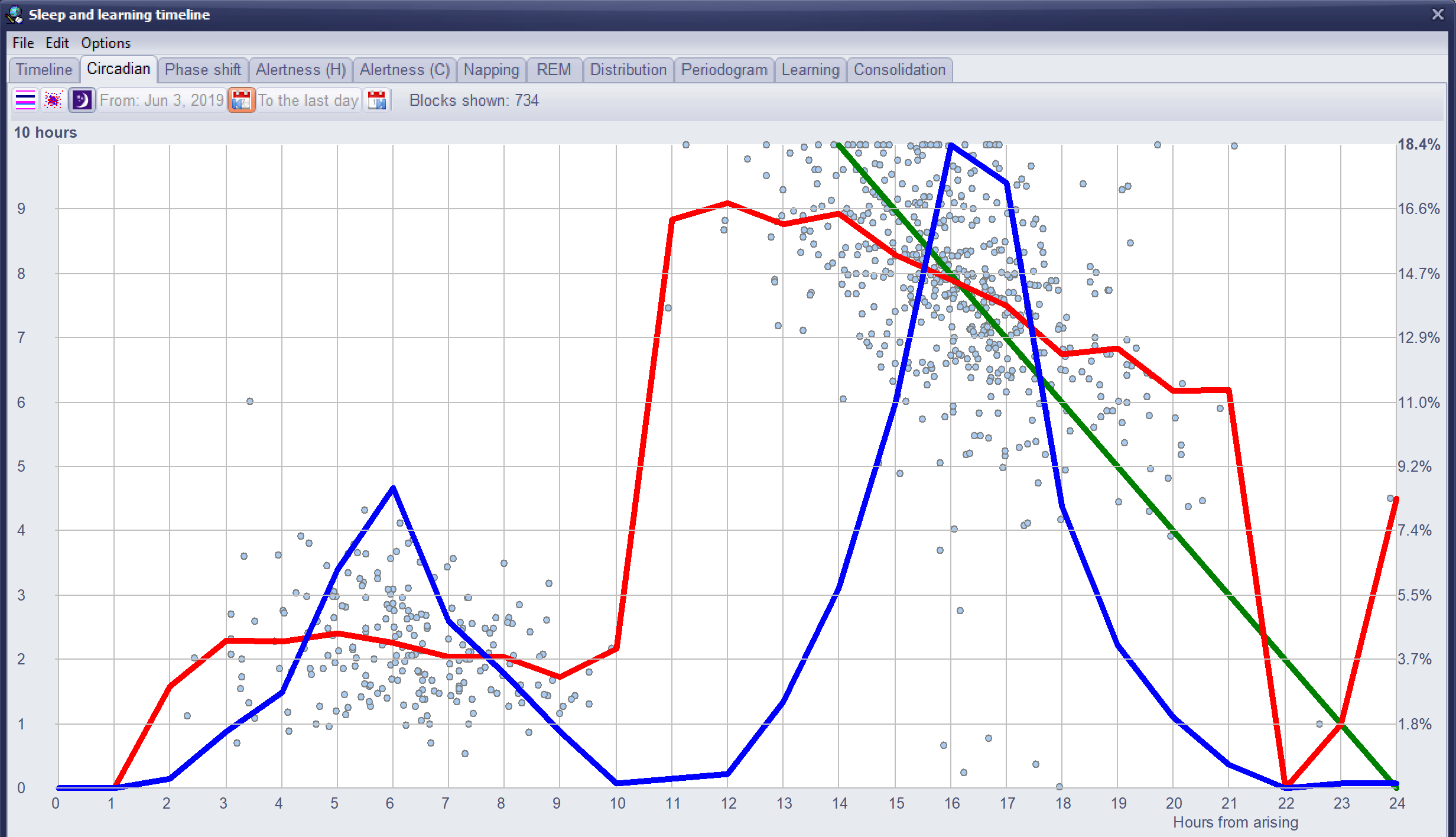I used to sleep very little (6 hours or so) and function well with extremely good academic achievement. Instead of sleeping 8 hours now, I would love those extra 2 hours each day again but I'm not sure it won't affect my cognitive ability in the short term. I don't trust my impressions and would love to have some quantitative data.
- What are areas that might be affected the most (e.g., long-term memory, working memory, speed of arithmetic calculations, vocabulary, reasoning, mood, etc.)?
- What are some tasks that would measure my performance in those areas? Ideally those tasks should be:
- quick to perform
- easy to implement (I could write a quick program to run those but if there is a web app somewhere that does that already, that would be ideal)
- fine with the subject knowing what is being measured (I'm going to apply them to myself, after all)
- produce similar results regardless of how much experience I have with them (I don't want to wonder whether improvement/regression is due to the changes in my sleep or getting better/tired with the task.) It's ok if the skill builds over a week or so and then stays constant.
I'm not attempting to prevent long-term negative consequences since AFAICT nobody knows what those might be. Besides, there are significant changes in my lifestyle every month or so and so there would be too much noise in the data.


Besides cognitive measures, measures of stress such as the lowest night time heart rate and heart rate variance are good metrics to track.
They are metrics of whether people are stressed.
If your lowest nightly heart rate goes up that's a sign that you are doing something that stresses your body. People who get a COVID-19 vaccine for example usually report that their lowest rate rate goes up in the night. The same goes for getting ill or being stressed at work.
For heart rate variance higher numbers are better and indicate that the body is less stressed. People with burnout have very low heart rate variance.
If you would observe that additional sleep increases your lowest nightly heart rate and reduces your heart rate variance that's a sign that your body recovers less well in the night.